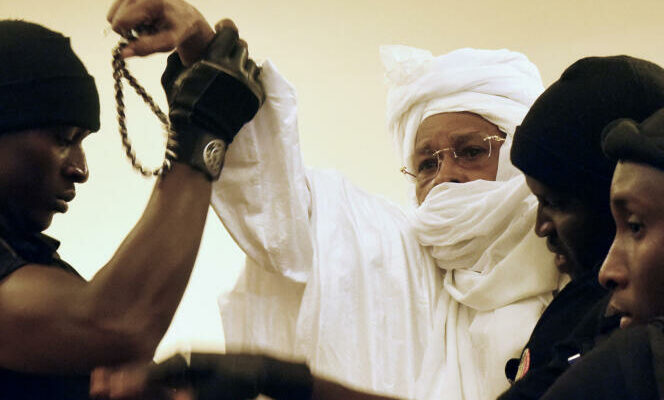“The Hunt for Hissène Habré. Judging a dictator in a world of impunity” (To Catch a Dictator. The Pursuit and Trial of Hissène Habré), by Reed Brody, translated from English (United States) by Lucie Delplanque, Karthala, 376 p., 27 €.
If we are to believe Herodotus, Pythagoras would have written that “he who does not justly fulfill the duty prescribed to him may be considered a violator of the general order of the Universe”. It is precisely this “rape” that the famous American human rights lawyer Reed Brody – “the dictator hunter”, as the press calls him – is attacking, who publishes The Hunt for Hissène Habréa magnificent account of the pursuit and trial of the former dictator of Chad.
In this legal thriller, Brody also looks back on part of his career, up to his current fight against the former dictator of Gambia, Yahya Jammeh, while already thinking about the crimes committed in Ukraine, Israel, Gaza… Son of a Hungarian Jew who survived the work camps in Ukraine under the Nazi occupation, Brody was born in Brooklyn in 1953 and, at a very young age, was filled with a visceral desire to do justice. He became deputy prosecutor for the State of New York in 1980, before going to Nicaragua in 1984, where he documented the crimes of the “contras” (guerrillas in Reagan’s pay) against civilians.
In 1998, Judge Baltasar Garzon issued an arrest warrant against former Chilean dictator Augusto Pinochet, and Reed Brody participated in the hearings in London. Education, he notes, “took place within the framework of “universal jurisdiction”: any State can, and sometimes must, prosecute the perpetrators of the worst international atrocities, regardless of where the crime was perpetrated”. Universal jurisdiction, the idea that nations are sisters in law, becomes Brody’s raison d’être. The persuit… is thus an intimate odyssey: the breathtaking story of an almost family issue, but also of an inner journey of Brody, who, in the Chadian affair, gradually cedes the spotlight to his African partners.
Hissène Habré (1942-2021) came to power in 1982 by force, with the complicity of the United States and France. In eight years – until his fall in Idriss Deby’s coup d’état (1952-2021) – he claimed more than forty thousand victims, ordered acts of torture and executions, and developed a systematic use of rape (which he carried out in person in his jails). Reed Brody spent sixteen years building the case, helped by Chadian lawyer Jacqueline Moudeïna, and traveling across Africa, particularly Senegal, where Habré took refuge in 1990.
You have 49.9% of this article left to read. The rest is reserved for subscribers.
